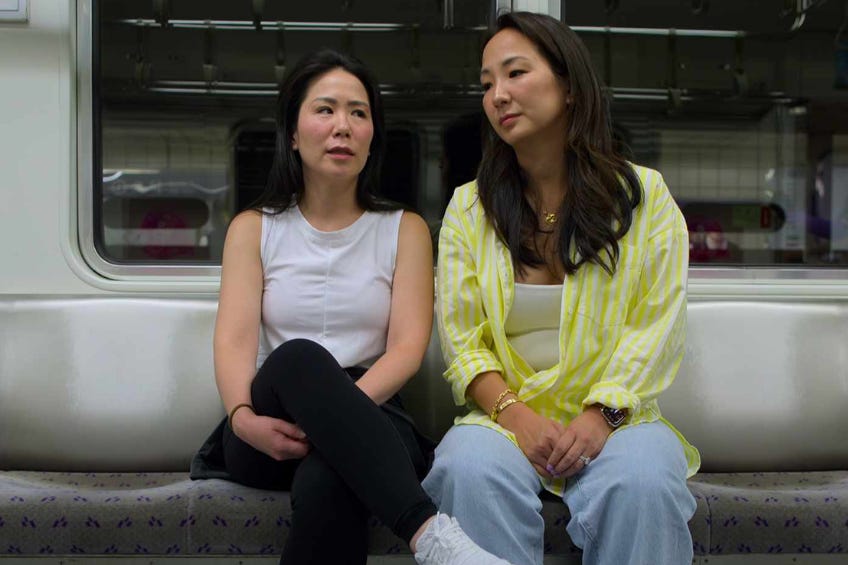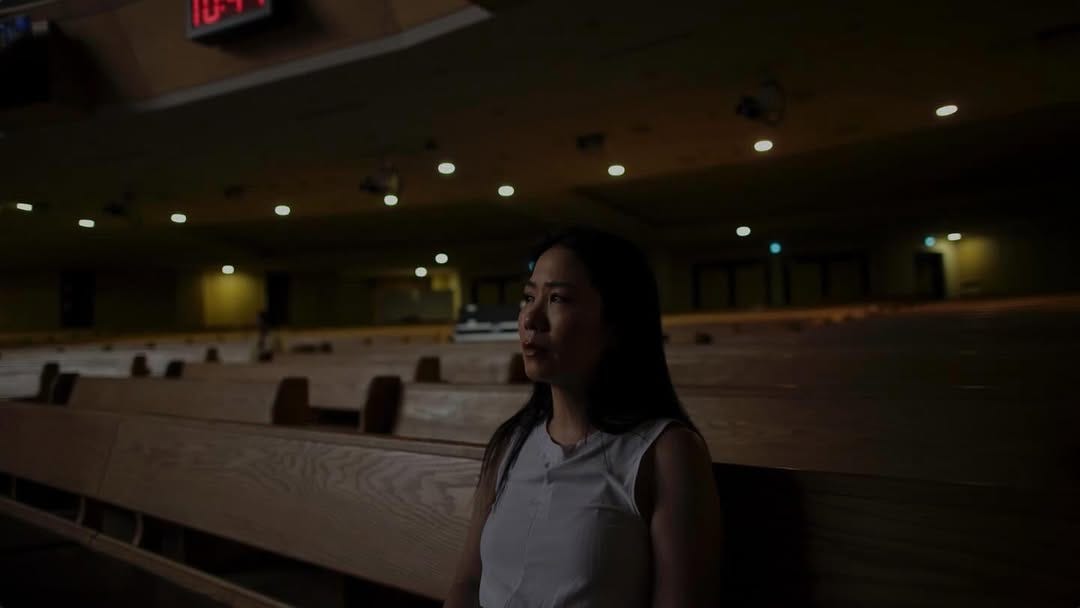Priscylla Lee Escaped A Cult & She’s Replacing Everything They Stole
“I really believed they were going to kill me.”
Imagine escaping your home of 23 years after being indoctrinated into a ‘cult’. Priscylla Lee, of Netflix’s Dancing For The Devil: The 7M TikTok Cult fame, bravely escaped Shekinah Church in 2022, 23 years after joining in 1999. “I really believed they were going to kill me,” Lee tells The Offcut. “When you leave, it’s like a switch goes off, and your heart beats, [you get] butterflies in your stomach, it’s like you’re running for your life.” She tried to leave the “possessive and aggressive” group multiple times, but this is the longest time she’s stayed out. What happens when you’ve been forced to follow a strict, injurious set of rules for your entire adult life, and then thrust back into freedom? Is there a part of you that wants to go back?
Shekinah founder Robert Shinn is known amongst the congregation as “the man of God” and as “the only one who knows the message of salvation”. This is key to controlling members because the only way to avoid hell is to stay close to the leader and not leave the group. In the Netflix documentary, some other high control group mechanisms allegedly include family members being separated from each other, and strict rules on when members were allowed to sleep. The church also controlled what they could eat and where they could go. Members were also unable to keep their income, which was directly donated to church leaders. Like many cults throughout history, Shekinah members were encouraged to dob each other in if they went against any of Shekinah’s rules.
There is no official definition of a high control group, but a widely accepted definition was provided by West and Langone in 1986. They define high control groups as a group or movement exhibiting a great or excessive devotion or dedication to some person, idea or thing and employing unethically manipulative techniques of persuasion and control. These methods include but are not limited to: isolation from former friends and family, debilitation, use of special methods to heighten suggestibility and subservience, powerful group pressures, information management, suspension of individuality or critical judgement, and promotion of total dependency on the group etc. These techniques are designed to advance the goals of the group’s leaders, often to the detriment of members, their families, or the community.
Lee describes the moment she fled Shekinah as a battle between her mind and body. Although she knew she was at her limit with how “stressful” it was to live in the group, she had been “brainwashed” to believe that going against Shekinah would condemn her to hell. Her body was reacting as if there was an “alarm going off”, almost as if it was telling her, “you’re going to hell, but you’re going to hell”.
“I packed my stuff and I booked it, and I left and turned off my phone in case they were trying to track me, because my phone wasn’t even under my name,” she recalls.
“Just talking about it makes me short of breath.”
Of course, there was part of her that missed Shekinah on some level, as she’d formed relationships within the church starting from when she was just 19. “I was there half my life, and I was there pretty much my whole adult life. And what happened in there shaped me. I built relationships with people in there, I love them in some ways,” she admits. But as soon as she started to believe Shinn was a “con man”, she knew there was no way she would ever return to Shekinah. The facade was completely broken, and she’s never going to be controlled again.
For those with loved ones stuck in a form of a high control group — whether it’s religious or not — it can be painful trying to convince them to leave. Lee says for those not fully integrated into a group, you can use the “bookshelf” technique. You shelve ideas in their mind for later when they need them most. She’s the first to say this would have had zero effect on her while she was in the thick of it, and explains that there’s “absolutely nothing you can do” in that situation. “They have to [choose to] go, which was me, I was [fully in]. They have to finish their walk, they have to finish that journey. And it is very unfortunate, but there’s just no other way. [They] have to wake up.”
During Dancing For The Devil: The 7M TikTok Cult, viewers saw Priscylla Lee tentatively repair her relationship with sister Melanie Lee, who left Shekinah in 2011 after 10 years in the group. Cults often target close relationships and encourage family members to cut off people who interfere with the integrity of the group. It’s another form of coercive control that leaves behind many broken relationships in its wake.
Once Lee’s sister had left Shekinah, her warnings fell on deaf ears. “You’re so damaged mentally. There’s so many things being said in your head, there’s so many traps,” Lee says. “It’s kind of like filling a bucket, one drop at a time, when [it] overflows, that’s when you’re going to wake up… while the drop is dropping, you don’t wake up, It has to explode in your head, because your mind is just processing everything.”
The sisters are still working on their relationship, but “it’s very difficult”, and this isn’t likely to change. “I think this is something that people in general have to understand. There’s trauma on both sides, whether or not you were in [the group]... and then another thing that happens is we trigger each other. So you know, it’s a lot of push and pull,” Lee explains. “The only thing that matters, I think, for me is the fact that I know I love her, I know she loves me, and that’s kind of the foundation of it, and how it will look in the future.” Since exiting Shekinah, Lee has rebuilt a wall that pushes away any people, places or circumstances that make her feel unsafe. It’s not conducive to building relationships with anybody in her past or new relationships she tries to form in the present, but she’s aware, and that’s half the battle.
When The Offcut reached out to Lee in 2024 requesting an interview, she wasn’t ready. In the year that has passed, she’s found herself significantly through her healing journey. “It’s hard to accept that you wasted all those years, not so much wasted, [but] you have believed in the lies… so you hate yourself, you’re condemning yourself, [you feel] shame [and] guilt, that’s the only way to process it. And you know, other people that I’ve met, they processed it as blaming others.”
Navigating her newfound freedom has been rough. It would make sense for Lee to lash out and put the blame on those in the church, or those who punished her in Shekinah, but she still believes in God. By leaning on her faith, she’s intent on forgiveness rather than resentment. “Part of me wanted to start calling everybody out and just start hating on everybody, because hating on yourself, you can only do so much, and when you hate on yourself, that hate comes out towards other people,” she recalls. “I had to stop. I had to learn how not to do that… as I was forgiving other people, I was forgiving myself. It took a lot of time, so I spent a lot of time alone.”
She admits she still spent half of her time “screaming” in her head “out of anger and frustration and bitterness.” But as time went on, she found a “form of closure”. “It’s not something that you think that’s going to happen. It just kind of does, something lifts. So then that 50% becomes 60/40, where there’s less screaming, 70/30, you know, 80/20 and so forth.” That’s not to say it’s a breeze. Lee likens it to learning to crawl, and admits it was “frustrating and embarrassing”.
“It’s really hard to have to start crawling again at this age, because I’m 45 now, but it’s you’re either going forward or you’re going backwards. And at the end of the day, I just don’t know how to go backwards.”
When Lee was in Shekinah, the ‘cult’ used high control techniques to encourage her to give up all of her income. Shekinah leaders told members of the congregation that they needed to “sow”, and that the “Shin family is the best soil”. At just 19, Lee would spend all her money on the Shinn nieces’ clothing. In a recent Instagram post, she alleged she would also have possessions taken away, such as clothing or handbags. Lee claims TikToker Miranda Derrick has now been given some of these possessions.
“It hurts because it takes me back to when they took it, and all the lies, you know… and these were things that I purchased, that I liked. And then those memories take me to when they took everything I had, and I was just in tears,” Lee says. “I’m actually working on saying [that] I’m a new person today, and I will decide what I want, what I don’t want, regardless of what they took. Because when they take something from you, you want to replace it, like 10 times [over].
“But I said, I can’t [do that]. I want to get to a place where I will no longer remember them. And right now I can’t, because it is a journey, and there are things happening. But once everything is over, I want to be able to just totally forget them and just go, who are you?”
If you want to hear more of Priscylla Lee’s story, you can watch Dancing For The Devil: The 7M TikTok Cult on Netflix or visit her Instagram at @priscyllalee.
Thanks for reading! If you want to support our writing, you can buy us a coffee below. If you aren’t able to, that’s totally fine! We’d love it if you could share our work with a friend; that would mean so much to us.
Rachel Choy is a cat lover, journalist, and co-founder of The Offcut. You can see how cute her cats are on @thekiwicouple.







